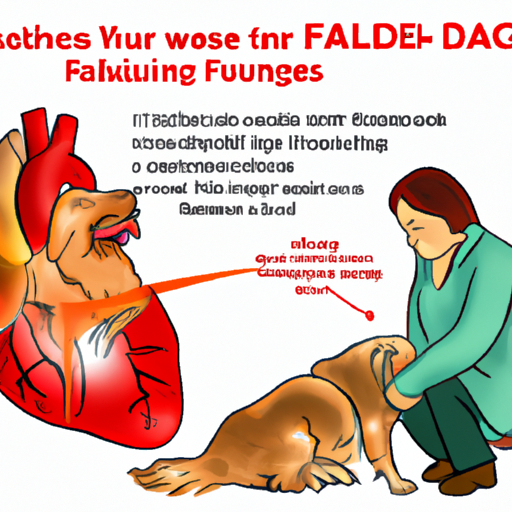As a loving pet owner, the health and well-being of your furry companion is undoubtedly paramount. It’s heartbreaking to watch your beloved pet go through any kind of suffering, especially when it comes from a condition as severe as congestive heart failure (CHF). This ailment is a progressive condition that gradually affects a dog’s heart, leading to a series of health complications. In this comprehensive guide, we’ll delve into the last stages of CHF in dogs, what to expect, and how you can provide the best possible care during this challenging time.
Table of Contents
- Understanding Congestive Heart Failure
- Signs and Symptoms of CHF
- The Last Stages of CHF
- How to Care for Dogs in the Last Stages of CHF
- Frequently Asked Questions
Key Takeaways
- Congestive heart failure in dogs is a serious progressive disease affecting the heart’s ability to pump blood effectively.
- The last stages of CHF manifest with severe symptoms such as difficulty breathing, fatigue, and loss of appetite.
- Quality of life can be maintained in the last stages of the disease with appropriate veterinary care and supportive home care.
- Euthanasia is a difficult but sometimes necessary decision to prevent unnecessary suffering.
Understanding Congestive Heart Failure
CHF in dogs is not a disease in itself, but rather a manifestation of an underlying heart disease. It occurs when the heart can no longer pump blood efficiently, leading to an accumulation of fluid in the lungs, abdomen, or other body parts. This condition can affect dogs of any breed or age but is more common in older dogs. If you want to understand more about this condition, this comprehensive guide from PetMD provides an excellent overview.
Signs and Symptoms of CHF
The symptoms of CHF in dogs can vary widely, depending on the severity of the disease and the individual dog’s overall health. Common signs include coughing, difficulty breathing, fatigue, loss of appetite, and a decreased ability to exercise. For a more detailed look at these symptoms, check out this informative article on One Top Dog.
The Last Stages of CHF
As CHF progresses into its last stages, the symptoms become more severe. Your dog may experience difficulty breathing, even at rest, and show a significant decrease in activity level. They may also lose their appetite and start to lose weight. In some cases, fainting spells or sudden death can occur due to the heart’s inability to pump blood effectively.
How to Care for Dogs in the Last Stages of CHF
Caring for a dog in the last stages of CHF requires a combination of veterinary care and supportive home care. Your vet may recommend medications to help control the symptoms and slow the progression of the disease. At home, you can help by providing a calm and comfortable environment, feeding a diet tailored to cardiac health, and limiting strenuous activity.
For more information on caring for a dog with CHF, these resources from One Top Dog will be helpful: Caring for a Dog with a Heart Condition, and Choosing the Right Diet for Your Dog.
Frequently Asked Questions
1. What is the life expectancy of a dog with CHF?
The life expectancy of a dog with CHF can vary significantly depending on the severity of the disease and the dog’s overall health. Some dogs may live for several years with proper management, while others may only have a few months.
2. Can CHF in dogs be cured?
While there’s no cure for CHF, the condition can often be managed with medication, dietary changes, and a controlled exercise regimen.
3. When should I consider euthanasia for my dog with CHF?
Euthanasia is a deeply personal decision and one that should be made with the guidance of your vet. Generally, it may be considered when your dog’s quality of life is severely compromised, and there’s little that can be done to alleviate their suffering.
In conclusion, while the last stages of CHF in dogs can be challenging, with the right knowledge and resources, you can ensure your pet is comfortable and cared for during this difficult time. Always consult with your vet for the best advice regarding your pet’s health.



